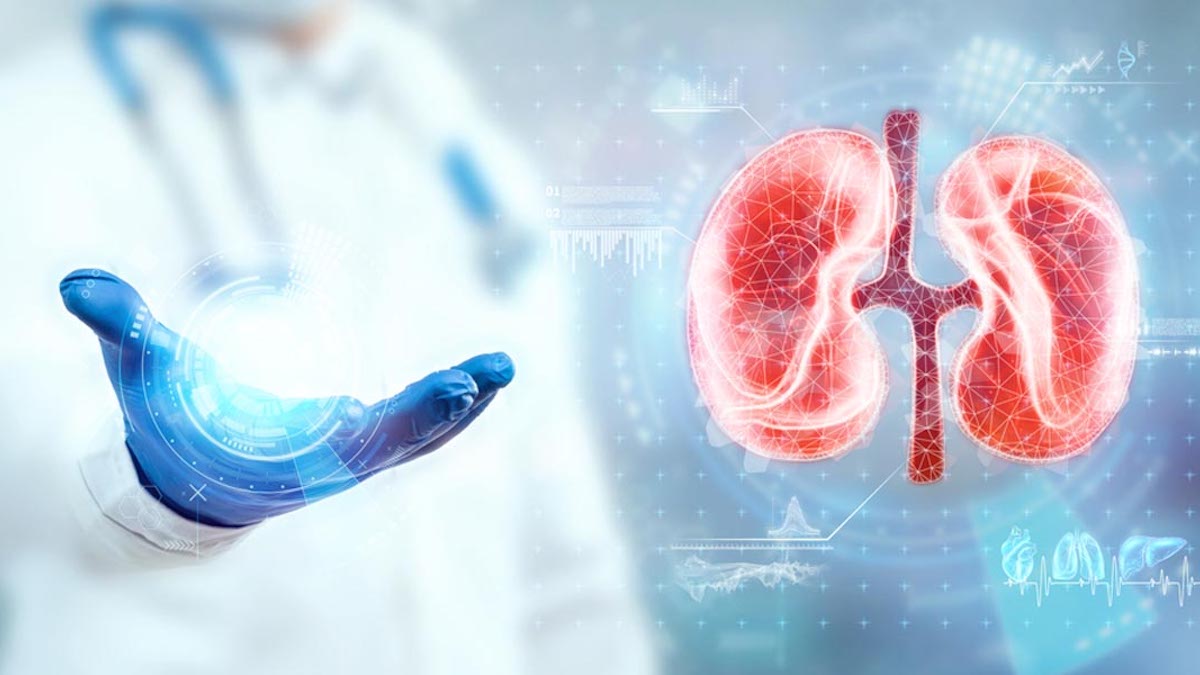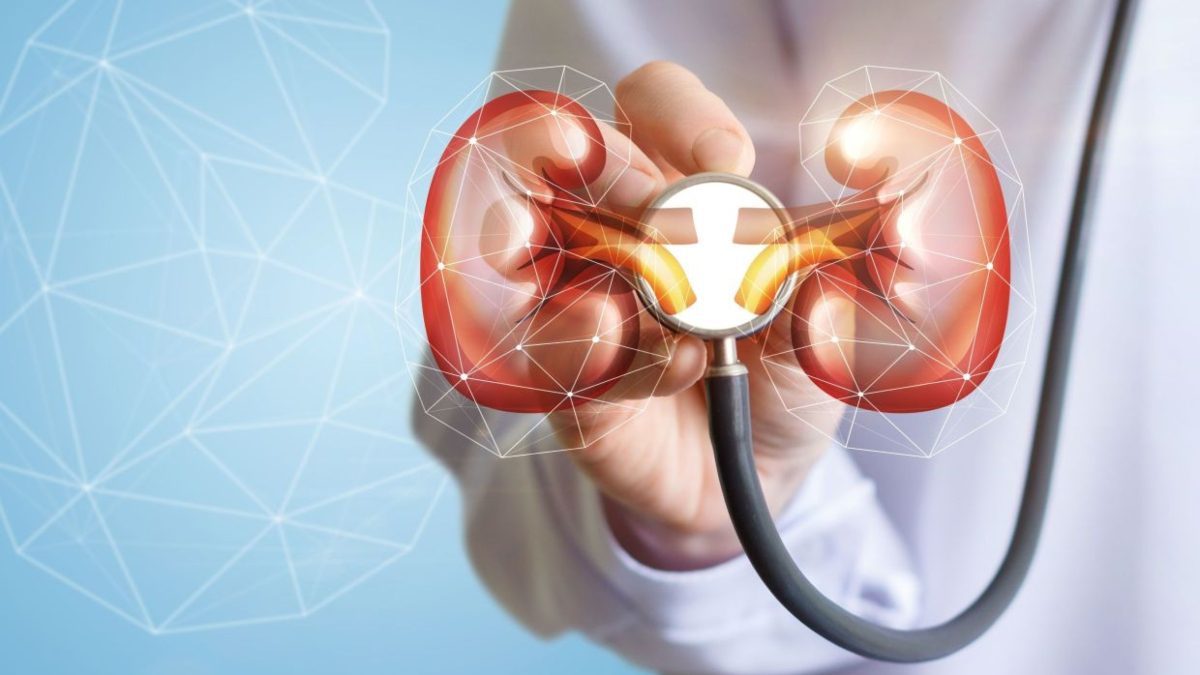Kidney Disease
CoreMed Plus is a healthcare provider that offers a wide range of services to help people manage chronic conditions such as kidney disease. Kidney disease, also known as renal disease, is a chronic condition in which the kidneys are damaged and can no longer function properly. Various factors, including high blood pressure, diabetes, and other chronic health problems, can cause it. Symptoms may include fatigue, nausea, vomiting, and changes in urination.
Treatment typically involves managing underlying health conditions and making lifestyle changes, and in some cases, may require dialysis or a kidney transplant. CoreMed Plus is committed to providing high-quality care and support to people with kidney disease, offering personalized treatment plans, ongoing monitoring, and access to a team of healthcare professionals. Whether you seek diagnosis, treatment, or ongoing support for kidney disease, CoreMed Plus is dedicated to helping you manage your condition and improve your quality of life.

What is Kidney Disease
Kidney disease, also known as renal disease, is a chronic condition in which the kidneys are damaged and can no longer function properly. The kidneys filter waste products and excess fluid from the blood and eliminate them through urine. When the kidneys are damaged, waste products and excess fluid can build up in the body, leading to various health problems.
There are two main types of kidney disease: acute kidney injury and chronic kidney disease. Acute kidney injury occurs suddenly, often due to a sudden drop in blood flow to the kidneys or damage to the kidneys themselves. Several factors, including dehydration, infections, medications, and injury, can cause this type of kidney disease. In most cases, acute kidney injury is reversible with proper treatment.
Acute Kidney Disease
Acute kidney injury (AKI), or acute renal failure, is a sudden and rapid loss of kidney function. It occurs when the kidneys cannot filter waste and excess fluid from the blood, which can lead to a buildup of toxins in the body. AKI can be a serious and potentially life-threatening condition; prompt diagnosis and treatment are essential.
Various factors, including dehydration, a sudden drop in blood pressure, infections, medications, and kidney damage from a traumatic injury can cause AKI. The condition can develop rapidly, sometimes in hours, and can occur in people of all ages.
Symptoms
Symptoms of AKI can vary depending on the severity of the condition but may include decreased urine output, fluid retention, fatigue, nausea and vomiting, and confusion or drowsiness. People with AKI may also experience shortness of breath, chest pain, or seizures.
Diagnosing
Diagnosing AKI typically involves a combination of blood and urine tests, imaging tests, and a physical examination. The goal of diagnosis is to determine the cause of the kidney injury and the extent of damage to the kidneys.
Treatment
Treatment for AKI typically involves addressing the underlying cause of the kidney injury and providing supportive care. This may include intravenous fluids to restore blood flow to the kidneys, medications to control blood pressure or treat infections, or temporary dialysis to help the kidneys filter waste and excess fluid from the blood.
In some cases, AKI can be prevented by taking steps to manage underlying health conditions, such as diabetes or high blood pressure. It is also important to avoid medications or substances that can cause kidney damage, such as nonsteroidal anti-inflammatory drugs (NSAIDs) or certain antibiotics.
Acute kidney injury is a sudden and rapid loss of kidney function that can occur as a result of dehydration, sudden drop in blood pressure, infections, medications, and kidney damage from a traumatic injury. Prompt diagnosis and treatment are essential to prevent serious complications. Symptoms of AKI can include decreased urine output, fluid retention, fatigue, nausea and vomiting, and confusion or drowsiness.
Treatment typically involves addressing the underlying cause of the kidney injury and providing supportive care. Preventing AKI involves managing underlying health conditions and avoiding medications or substances that can cause kidney damage. If you experience any symptoms of AKI, it is important to seek medical attention immediately.

Chronic Kidney Disease
Chronic kidney disease (CKD) is a long-term condition in which the kidneys are damaged and can no longer function properly. CKD is a progressive disease that can worsen over time if left untreated.
Symptoms of CKD
In the early stages of CKD, a person may not have any noticeable symptoms, making it difficult to diagnose. However, as the disease progresses, symptoms may become more apparent.
The kidneys play a vital role in filtering waste products and excess fluid from the blood, which are then eliminated from the body through urine.
When the kidneys are damaged, waste products and excess fluid can build up in the body, leading to various health problems. In addition to filtering waste and excess fluid, the kidneys also help regulate blood pressure and produce hormones that stimulate red blood cell production.
CKD is typically caused by kidney damage from underlying health conditions, such as high blood pressure or diabetes. Other conditions that can lead to CKD include chronic infections, autoimmune diseases, and genetic disorders.
Stages of CKD
There are five stages of CKD, with stage 1 being the mildest and stage 5 being the most severe. In the early stages of CKD, there may be no noticeable symptoms. As the disease progresses, however, symptoms may include fatigue, nausea, vomiting, swelling in the legs or ankles, and changes in urination, such as increased frequency or decreased output. In some cases, CKD may also lead to high blood pressure, anemia, and bone loss.
Diagnosing CKD
Diagnosing CKD typically involves a combination of tests, including blood and urine tests, imaging tests, and a kidney biopsy. These tests can help determine the extent of damage to the kidneys and help healthcare providers develop a treatment plan.
Treatment for CKD
Treatment for CKD typically involves managing underlying health conditions, such as high blood pressure or diabetes, and making lifestyle changes, such as following a healthy diet and exercise program, quitting smoking, and reducing alcohol consumption. In some cases, medications may be prescribed to manage symptoms or slow the progression of the disease.
Dialysis or a kidney transplant may be necessary for people with more advanced CKD. Dialysis involves using a machine to filter waste products and excess fluid from the blood, while a kidney transplant involves surgically replacing a damaged kidney with a healthy one from a donor.
Preventing CKD involves taking steps to manage underlying health conditions, such as controlling high blood pressure and diabetes, as well as following a healthy lifestyle. This can include eating a balanced diet, staying physically active, maintaining a healthy weight, and avoiding smoking and excessive alcohol consumption.
Treatment for Kidney Disease
The treatment for both types of kidney disease, acute kidney injury (AKI) and chronic kidney disease (CKD), can vary depending on the cause and severity of the condition. However, some common treatments and management strategies can help people with kidney disease.
Treatment for Acute Kidney Injury: The treatment for AKI focuses on managing the underlying cause of the condition and providing supportive care to prevent further kidney damage. Some treatment options include:
- Intravenous Fluids: To restore blood flow to the kidneys and to prevent dehydration.
- Medications: Medications may be prescribed to treat underlying infections or to control blood pressure.
- Temporary Dialysis: In severe cases, temporary dialysis may be necessary to help the kidneys filter waste products and excess fluid from the blood.
- Nutritional Support: In some cases, nutritional support, such as protein supplements, may be recommended to help support kidney function.
Treatment for Chronic Kidney Disease: The treatment for CKD is focused on managing underlying health conditions, slowing the progression of the disease, and preventing complications. Some treatment options include:
- Blood Pressure Control: High blood pressure is a common cause of CKD, and controlling blood pressure is a key part of treatment.
- Medications: Medications may be prescribed to manage symptoms and slow the progression of the disease. These may include medications to control blood sugar levels in people with diabetes or inflammation in people with autoimmune diseases.
- Dialysis: In the advanced stages of CKD, dialysis may be necessary to filter waste products and excess fluid from the blood.
- Kidney Transplant: In some cases, a kidney transplant may be necessary to replace a damaged kidney with a healthy one.
- Lifestyle Changes: Making lifestyle changes, such as following a healthy diet, getting regular exercise, and quitting smoking, can help manage underlying health conditions and slow the progression of the disease.
People with kidney disease need to work closely with a healthcare provider to develop a personalized treatment plan that meets their needs. Regular monitoring and check-ups are also important to track the progression of the disease and adjust treatment as needed.
The treatment for both acute kidney injury and chronic kidney disease is focused on managing underlying health conditions, slowing disease progression, and preventing complications. Treatment options may include medications, dialysis, kidney transplant, and lifestyle changes. People with kidney disease need to work closely with a healthcare provider to develop a personalized treatment plan and to undergo regular monitoring to ensure the best possible outcomes.
How CoreMed Plus Can Help You
CoreMed Plus is committed to helping people with kidney disease manage their condition and improve their quality of life. We offer a range of services and treatment options to help you manage kidney disease, including:
- Diagnosis and Evaluation: Our team of healthcare professionals can perform diagnostic tests and evaluations to accurately diagnose kidney disease and determine the extent of kidney damage.
- Personalized Treatment Plans: We work closely with you to develop a customized treatment plan that meets your needs based on your specific health status and goals.
- Ongoing Monitoring and Support: We provide regular check-ups and monitoring to track the progression of the disease and adjust treatment as needed. Our team can also answer any questions or concerns and provide ongoing support.
- Lifestyle Management: We can provide guidance and support for making lifestyle changes that can help manage kidney disease, such as following a healthy diet, getting regular exercise, and quitting smoking.
- Dialysis Management: We offer dialysis management services for people with advanced kidney disease to help manage symptoms and maintain kidney function.
- Kidney Transplant Evaluation: For people who may be candidates for a kidney transplant, we offer evaluation services to determine eligibility and provide guidance and support throughout the transplant process.
At CoreMed Plus, we are committed to providing high-quality care and support to help you manage kidney disease with confidence and ease. Whether you are seeking diagnosis, treatment, or ongoing support, our team is here to help you every step of the way.

Meet Dr. Mark Richter
I grew up in Florida as the oldest of five sons. After earning my degree from the University of Florida, I pursued my medical education in the Dominican Republic. In 1988, I began my Family Practice Residency at the “old” Pontiac General Hospital. I have been providing medical care to the same community since 1991, first in Waterford and later at our current location in White Lake, where I continue to practice today. I take pride in being board certified by the American Academy of Family Physicians and remain committed to Primary Care. I am passionate about promoting a healthy lifestyle, including a proper “balanced” diet, exercise, exposure to healthy outdoor activities, and achieving work-life balance. I married my Medical School Sweetheart, Barbara, and we are fortunate to have two adult children and a granddaughter. We have been residents of Oakland County since 1988 and enjoy all that Michigan has to offer.
Meet Briahnnon Long NP-BC
Briahnnon Long, NP-BC, graduated from Oakland University in 2009 with a Bachelor of Science in Nursing and worked as a nurse in the Cardiac Intensive Care Unit. She then pursued her Master of Science in Nursing. She graduated from The University of Michigan Flint in 2020 and became board certified by The American Nurses Credentialing Center as a Family Nurse Practitioner. She works in the acute care setting as a hospitalist and in the subacute care setting at a skilled nursing facility. She has special interests in health and wellness, preventative medicine, and chronic care management in the primary care setting. She loves being outdoors, cheering on her husband and two children in hockey, and camping and boating in the summer.
Begin Your Health Journey Today!
If you or a loved one is living with kidney disease, CoreMed Plus is here to help. Our team of healthcare professionals is dedicated to providing personalized care and support to help you manage your condition and improve your quality of life. With a range of services and treatment options available, we are committed to working with you to develop a customized plan that meets your individual needs.
Whether you are seeking diagnosis, treatment, or ongoing support, we are here to help you every step of the way. So don’t wait – take charge of your health and contact CoreMed Plus today to learn more about our services and how we can help you manage kidney disease with confidence and enthusiasm!
Contact Information
If you’re ready to take charge of your health and embark on a journey toward a healthier, happier life, we invite you to contact us today. Our compassionate and knowledgeable staff is excited to take your call and help you on your health journey. We will work closely with you to develop a customized treatment plan that is right for you and provide the support and care you need every step of the way.
Don’t let health concerns hold you back – contact CoreMed Plus today and let us help you achieve optimal health and wellness. We look forward to hearing from you and helping you achieve a healthier, happier life.
- Email: [email protected]
- Phone: +1 248-666-6005


